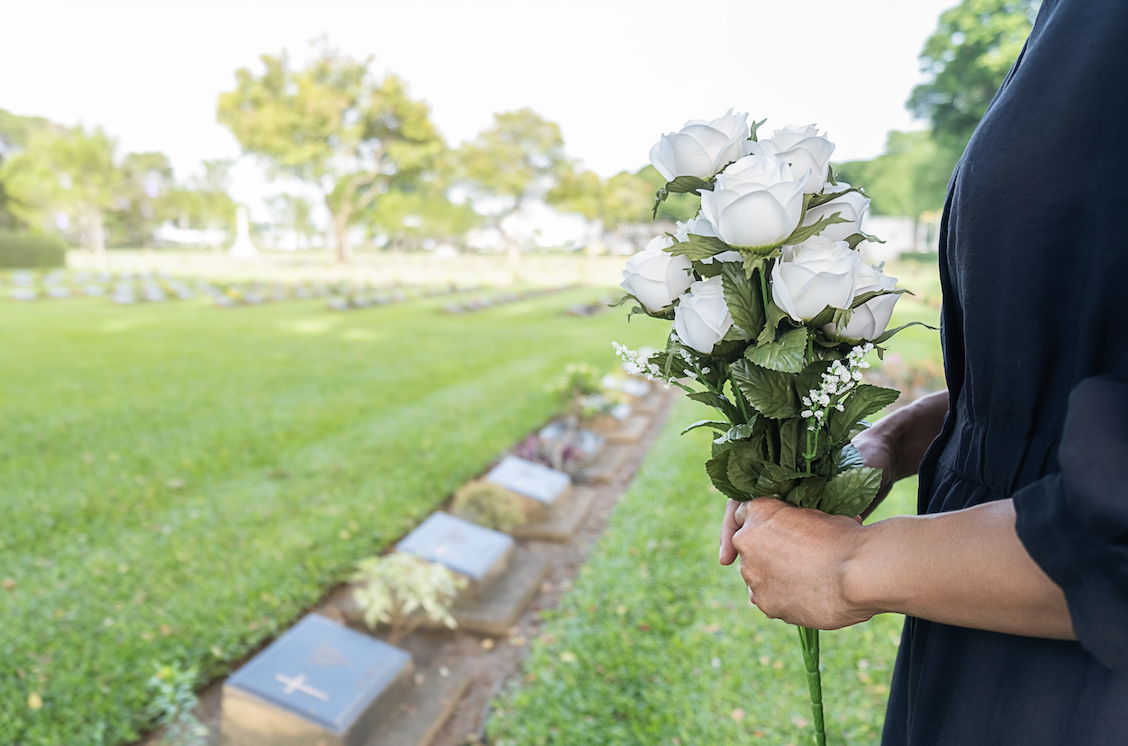Time to read : 3 Minutes
When someone we love dies, it’s natural to want to give them the best possible sendoff.
But funerals can be expensive, and they often require extensive decision making at an already stressful time.
Here are our tips on how to plan a funeral for someone you love, without breaking the bank or losing your mind over hymns and hearses in the process.
Just like in life, there are costs to consider with death too...
The 2019 Australian Seniors Cost of Death Report found that the average price of a standard burial in Australia is $9,403, while the average cost of a standard cremation in Australia is $5,591.
That said, the amount you spend on a funeral can vary depending on the type and scale of event you choose. Planning a funeral in Australia can range from $1,500 for a simple cremation to $20,000 for an elaborate burial and wake.
Basic costs include things like obtaining a death certificate, as well as storage, transfer and preparation of the body. You might pay more depending on your choice of service, cemetery plot and grave liner, funeral director and service or celebration.
When allocating a budget, establish whether your loved one had funeral insurance, either as part of their life insurance or as a separate product.
If so, find out who the nominated beneficiary is and contact their provider to begin the claims process. Claims are usually paid within 1-3 business days from the date of approval to ensure funds are in place to cover funeral costs.
It's important to be mindful of what someone wants for their funeral
Was there a will, Enduring Power of Attorney or other document which indicated how your loved one wanted to be celebrated and remembered?
⛪ Funerals can take the form of a traditional religious ceremony and wake, a celebration-of-life party and everything in between. There are no hard and fast rules.
Find a funeral director to suit your needs
Once you have an idea of what kind of ceremony you’d like, you can start to look into funeral directors in your area.
💐 Funeral directors are well versed in pulling together a detailed and meaningful ceremony at short notice. From the word “Go”, the funeral director and their team can organise transport of the body and help you arrange things like a death certificate and insurance claims.
Consider the details… or don’t
The next step is to start making some decisions about the details of the funeral. Location, who to tell and how (great aunts aren’t always on Facebook…).
🎵 What kind of music would you like played? Would you like to have readings or eulogies? Suddenly you’re looking at pictures of caskets and candles and it can begin to feel tremendously overwhelming.
Some key decisions to think about
Date and time of the funeral — Some people opt to have a private service or burial first then organise a memorial at a later date.
Burial or cremation? Was your loved one an organ donor?
What type of service and tone would you like on the day? Religious? Celebratory? Big or small?
What would you like to say during the service? Are there any particular songs, poems, images or videos you’d like to use? Who will deliver a eulogy?
Will there be a closed or open casket? And if so, how would you like your loved one to be dressed? (You will even be asked if you prefer makeup on your loved one for the day).
Will you hold a reception or wake? What kinds of food and drinks would you like to include?
🫶 Just remember, at the end of the day it doesn’t matter if you don’t like the font used in the church booklets. What matters is saying goodbye in your way.
Take a quiet moment with your grief
Grief is a natural process, and it’s important to allow yourself to feel it — even when thinking about flowers and casket toppers.
Spend time with friends and family if it helps, but keep in mind the wonderful (and FREE) support services like Griefline and ReachOut.
The bottom line
Funerals are a hard but necessary part of life. By following these tips, you can make sure that the funeral you plan for someone you love is stress-free and affordable.
💔 Remember, there’s no right or wrong way to send someone off — it’s about remaining true to their wishes and how they lived their life.
